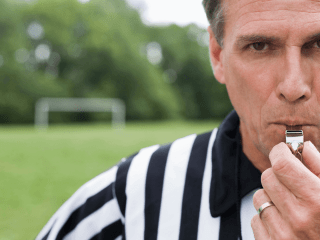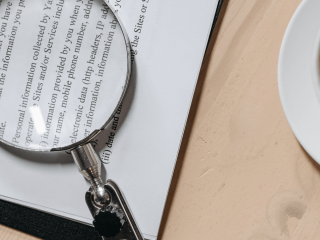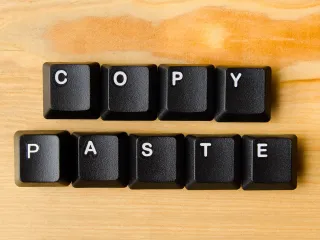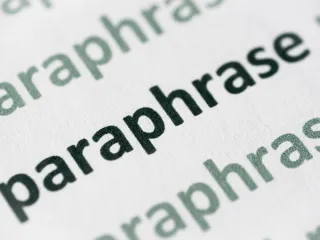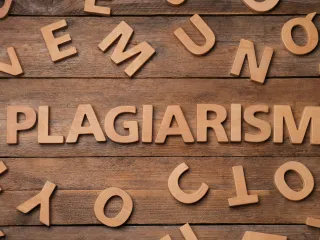Does Blackboard Check for Plagiarism?
Before turning in your papers, reports, or dissertations, you should know that yes, the common teachers’ platform, Blackboard, does in fact check for plagiarism. That’s why it’s imperative to be sure that any work you submit to your teachers or professors doesn’t contain a single trace of plagiarism. A missing citation or improper paraphrasing could result in accusations of academic dishonesty because Blackboard has a function that checks for it.
Blackboard is one of the leading digital course-management systems used by K-12, higher education, and businesses for delivering supplemental online materials. As part of its assignment submission features, the platform has a built-in function, called SafeAssign, that checks for plagiarism. To use SafeAssign, a professor simply indicates that all submitted assignments should automatically go through a plagiarism detection process.
Blackboard plagiarism detection software and SafeAssign accept all kinds of file formats that can be converted to plain text formats, including .doc, .docx, .htm, .html, .ppt, .pptx, .rtf, .txt, and .pdf files. But students should know that through SafeAssign, Blackboard can still scan all submissions for plagiarism, regardless of the file type.
Students’ grades and academic futures benefit from thoroughly checking their assignments prior to submission, especially ensuring all citations are present and there are no instances of poor paraphrasing that could result in extreme consequences.
Can Blackboard Tell If I’ve Plagiarized My Paper?
Blackboard will instantly detect plagiarism in any assignment very simply. The SafeAssign Database guarantees that Blackboard will recognize plagiarism quickly, and once it does the platform will issue a plagiarism report to the university’s institutional database.
SafeAssign catches plagiarism in an assignment through the comparison of words. The database compares the submitted work with millions of other submitted papers as well as other writing published on the internet to find repetition and overlap. Through this scanning of the internet’s other sources, SafeAssign can also identify missing citations in a paper.
Students can’t trick SafeAssign through a Blackboard assignment, so there’s no use trying. Student submissions and student papers must include citations for all statistics, ideas, and information not original to the student. When those citations are missing, either by accident or intention, Blackboard will undoubtedly detect plagiarism.
Blackboard will also target similarities with other papers from that student, and instances where students might plagiarize themselves (a lesser-known form of plagiarism called self-plagiarizing) by repeating text from their own previous writing. Being able to spot these errors early is essential to success.
Citations for ideas and information are essential for avoiding plagiarism. Quetext has a built-in citation generator that creates citations for students automatically. If plagiarism is spotted, Quetext will generate the proper citation in APA, MLA, or Chicago style for both in-text and works cited use. This allows students to be confident that their work is ready for review by instructors and professors who typically use Blackboard’s plagiarism checker.
Check For Plagiarism Before Submitting
Rushed or careless writing can lead to surprise accusations of plagiarism on submitted papers or reports. For this reason, checking for plagiarism prior to the due date should be an automatic part of the academic writing process. Additionally, students should consider utilizing plagiarism-checking software for added confidence prior to turning in their work. That way, students will know their assignment submissions won’t trigger a plagiarism report.
Plagiarism prevention is made simple with the Quetext plagiarism checker. This web page examines assignment submissions for poorly done paraphrasing, and compares the content against a global reference database. Rich text format (.rtf) files can be checked more closely with Quetext to avoid accidental plagiarism and all the academic problems it entails.
Quetext will highlight cases of clear plagiarism as well as those where the content overlap is fuzzy, which could result in anything from deducted points in an overall grade to academic probation. Patchwork plagiarism, which is when a writer will peice togetheer and repeat the works of multiple sources or authors, can also be spotted by Quetext.
Copywriters and even busy professionals can use Quetext to prevent or detect cross-institutional plagiarism, helping them avoid embarrassment and a business faux pas. In the business world, plaigiarizing can mean tarnishing ones reputation and in some circumstances losing your job.
Quetext also has the capability to spot where citations are missing and help students by instantaneously generating citations following APA, MLA, and Chicago style rules. Not only will Quetext prevent accusations of plagiarism but the plagiarism checker will also prevent points deducted for incorrect citations throughout writing.
Source-based plagiarism, stemming from the use of incorrect sources in citations, may be accidental, but will still wind up resulting in a plagiarism report on students’ work. Quetext will easily spot those errors, as well as citations that aren’t correctly following the rules of APA, MLA, or Chicago style.
The best way to avoid any of these instances of plagiarism is to use a plagiarism checker on every assignment. Don’t let poor paraphrasing or citation errors result in failing grades on projects, or in the business world potential job loss. Quetext can only benefit and improve one’s academic and professional writing. Not only will it help polish a paper, it will provide plagiarism prevention and generate citations using the appropriate style.
Consequences of Plagiarizing
Each college and university has its own policies on plagiarism and thier own consequences, but most include an automatic failing grade for the project, the class, or both. In some more extreme situations, students can expect to be put on academic probation, suspension or expulsion.
Plagiarism accusations have the potential to ruin an academic career, so knowing that Blackboard and Turnitin are used devoutly by faculty and instructors should encourage students to submit all assignments with caution. All assigments will have SafeAssign originality reports so students shouldn’t take chances.
Missing citations, incorrect citations, and paraphrasing the work of others incorrectly are just a few ways students can accidentally plagiarize in writing assignments. Students can even plagiarize their own previous work.
Even when plagiarism occurs unintentionally, it will still have devastating effects on academic performance. This is why Quetext’s plagiarism checker is such a valuable resource for students. By checking submitted work against a global reference database, Quetext provides students peace of mind, and helps protect against plagiarism by generating proper citations for students to add to their papers. Plagiarism prevention polishes writing and goes a long way toward ensuring academic success.
Student work should always be scanned through Quetext to check for plagiarism before submitting to their professor or instructor. This way, students aren’t risking possible academic punishment or expulsion over plagiarism. Myriad academic issues can be avoided by simply checking work for plagiarism through Quetext.


